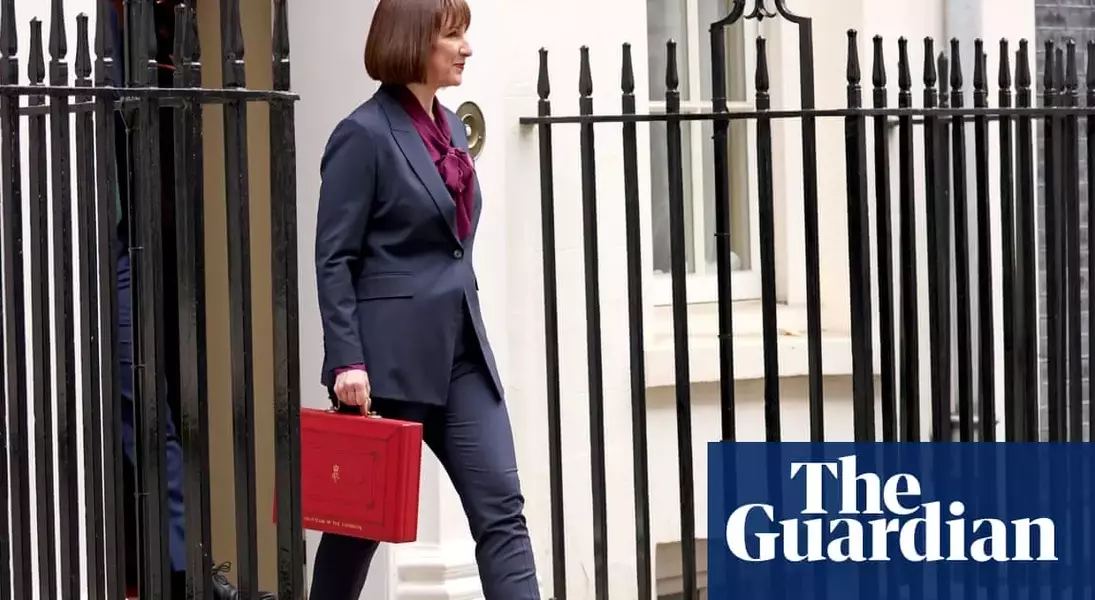Rachel Reeves, the Chancellor of the Exchequer, has unveiled her first budget, aiming to strike a balance between fiscal responsibility and the pressing needs of public services. The Institute for Fiscal Studies (IFS), a leading think tank, has weighed in on the implications of Reeves' budget, offering insights into the challenges and trade-offs that lie ahead.
Navigating the Fiscal Landscape: Reeves' Approach
The IFS has acknowledged that Reeves' budget represents a substantial short-term increase in public service spending, a departure from the "unrealistic" and "irresponsible" spending plans of the previous Conservative government. However, the think tank cautions that this increased spending may not be sustainable in the long run.Paul Johnson, the director of the IFS, suggests that Reeves will need to find additional sources of funding to maintain the level of public service spending outlined in her budget. He argues that the spending plans are not likely to "survive contact with her cabinet colleagues," implying that political realities may force Reeves to make difficult choices in the future.Balancing Short-Term Needs and Long-Term Sustainability
The IFS analysis highlights the delicate balance Reeves must strike between addressing immediate public service needs and ensuring long-term fiscal sustainability. While the budget's real-terms increases in day-to-day spending on public services may provide much-needed relief, the think tank cautions that these increases may not be sustainable in the long run.Johnson's observation that it would be "odd to increase spending rapidly only to start cutting back again in subsequent years" underscores the challenge Reeves faces in crafting a coherent and consistent fiscal strategy. The IFS suggests that the chancellor may need to find additional revenue sources or make tough decisions to maintain the level of public service spending outlined in her budget.Addressing the Legacy of Conservative Fiscal Policies
The IFS also takes aim at the fiscal policies of the previous Conservative government, led by former Chancellor Jeremy Hunt. The think tank criticizes the "sweeping tax cuts" announced by Hunt despite "ballooning pressures on public services and soaring debt interest payments," describing these actions as "not responsible."This critique highlights the broader context in which Reeves is operating, as she seeks to undo the perceived damage caused by the previous administration's fiscal policies. The IFS's assessment suggests that Reeves may need to take a more cautious and deliberate approach to public spending, balancing the need for immediate investment with the imperative of long-term fiscal sustainability.Navigating the Political Landscape
Beyond the technical and economic considerations, the IFS analysis also touches on the political realities Reeves must navigate. The suggestion that her spending plans may not "survive contact with her cabinet colleagues" underscores the challenges of building and maintaining a cohesive political coalition around the government's fiscal agenda.Reeves will need to carefully manage the competing interests and priorities of her party, her cabinet, and the broader political landscape to ensure the successful implementation of her budget proposals. This will require adept political maneuvering, effective communication, and the ability to forge consensus around the government's fiscal priorities.Conclusion: A Delicate Balancing Act
The IFS's assessment of Reeves' budget highlights the complex and multifaceted challenges facing the Chancellor of the Exchequer. While her budget represents a significant departure from the previous government's approach, the think tank cautions that maintaining the level of public service spending outlined in the budget may prove difficult in the long run.Reeves must navigate a delicate balancing act, addressing immediate public service needs while ensuring long-term fiscal sustainability. This will require a combination of innovative revenue-raising measures, strategic spending decisions, and effective political leadership. As the government's fiscal agenda unfolds, the IFS's insights will continue to shape the public discourse and inform the ongoing debate around the role of government in addressing the country's pressing challenges.You May Like

